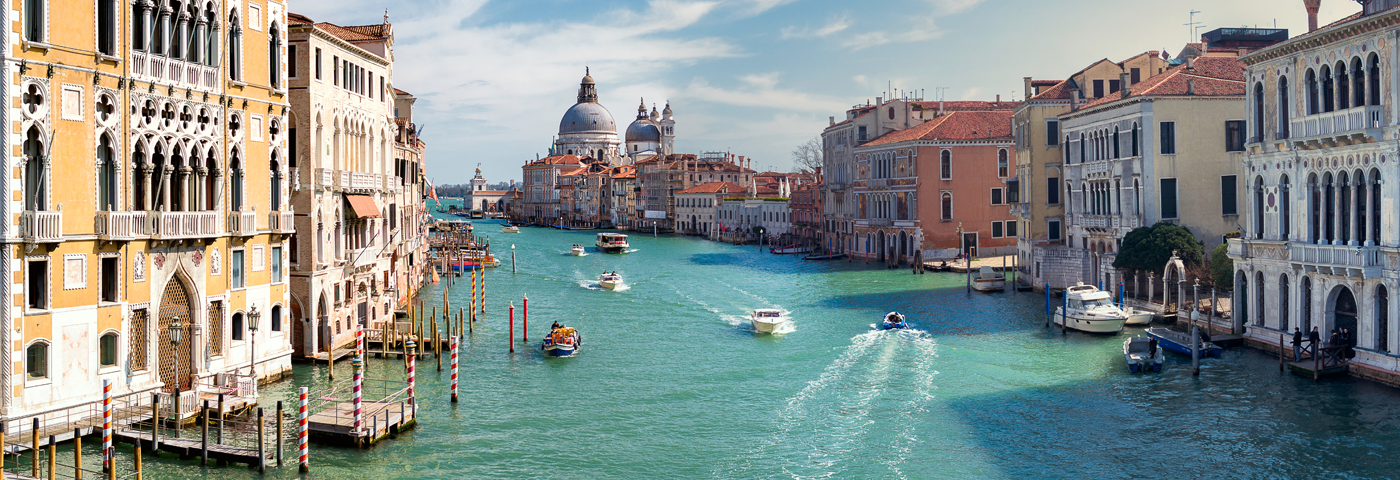Few people can have missed this week’s pictures of a flooded Venice, and the video of the pizza restaurant that channeled the Titanic’s violinists and kept serving pizzas with the water lapping round its diners’ ankles. For those of us working in tourism these images should provide a most visible reminder that whatever issue we are dealing with, what we really should be talking about is how we tackle the ongoing breakdown of our climate.
For the last couple of years, the Venice tourism story has been all about overtourism. Newsfeeds have been filled with pictures of protesters taking to little boats to confront the cruise ship behemoths, or reports of the latest fine for unruly behaviour, up to 500 dollars for sitting in the wrong place, or pausing too long on a bridge.
The truth is, stories about Venice being overrun with tourism are as old as tourism itself. It has always been a honeypot. Back in the late 19th Century, the American novelist Henry James wrote: “Though there are some disagreeable things in Venice there is nothing so disagreeable as the visitors.”
In other words, Venice has always been a sinking repository of old stories. But what the current floods make clear is that it is also an overflowing petri dish of what is to come.
The so called Acqua Alta is a high tide that strikes Venice on average four times a year. According to a 2009 article in the New Scientist, a team of researchers studying the impact of climate breakdown and erosion on the city made a conservative estimate that: “by the end of the century high water could swamp the city between 30 and 250 times a year.” Back then, the lead scientist described this as “unsustainable aggression.” And – as is so often with the impacts our ever growing climate disaster – the current signs suggest things may get worse sooner and more ferociously than they predicted just nine years ago.
In other words, Venice could become unlivable, and abandoned. Unlivable for the ever dwindling numbers that call the city place home. Although, as I wrote in my book Transforming Travel earlier this year, “it’s not hard to imagine that the cruise ships would still bring visitors to ‘experience’ Atlantis, and that Gondoliers would continue to ferry people around the sunken remains of the city, now stripped of its homes, restaurants, shops and people. At what point would the guides start telling a different story? When might tourists come to Venice not just to learn about its past, but to prepare for their future?”
The sooner the better. If we really want to address the causes of overtourism, we need to address the causes of global warming. As I wrote in my previous WTM blog on the links between overtoursim and global warming: “You might solve a local problem by dispersing tourists somewhere else or by spreading the time they arrive over the course of a week, month or year. But if the overall numbers keep growing then the impact on the climate of all these well-managed, widely distributed tourists will keep growing too.”
Like all issues to do with how our societies are changing, climate breakdown and overtourism are inextricably linked. It’s not just me saying this. In March 2017, the UN General Assembly High-Level Event on Climate Change and the Sustainable Development Agenda concluded that: “The climate and sustainable development agendas are more than mutually enforcing, their fates are intertwined.” And when the European Travel Commission published its report into tourism and climate change earlier this year, it agreed, stating: “It is difficult to overstate the significance of climate change for the competitiveness, sustainability and geography of global tourism development in the 21st Century.”
As the UN and ETC make clear, the spectre of climate change looms across everything we are trying to do. It really doesn’t matter whether we are dealing with gender, inclusivity, wellbeing, wildlife, water, or the rights of Indigenous Peoples. We can’t deal fairly and meaningfully with any of these issues, if we can’t tackle global warming.
All of these issues will be discussed in the next few days in World Travel Market’s annual responsible tourism programme. And for each one of them, discussing how we respond to the climate crisis needs to play a central role.


